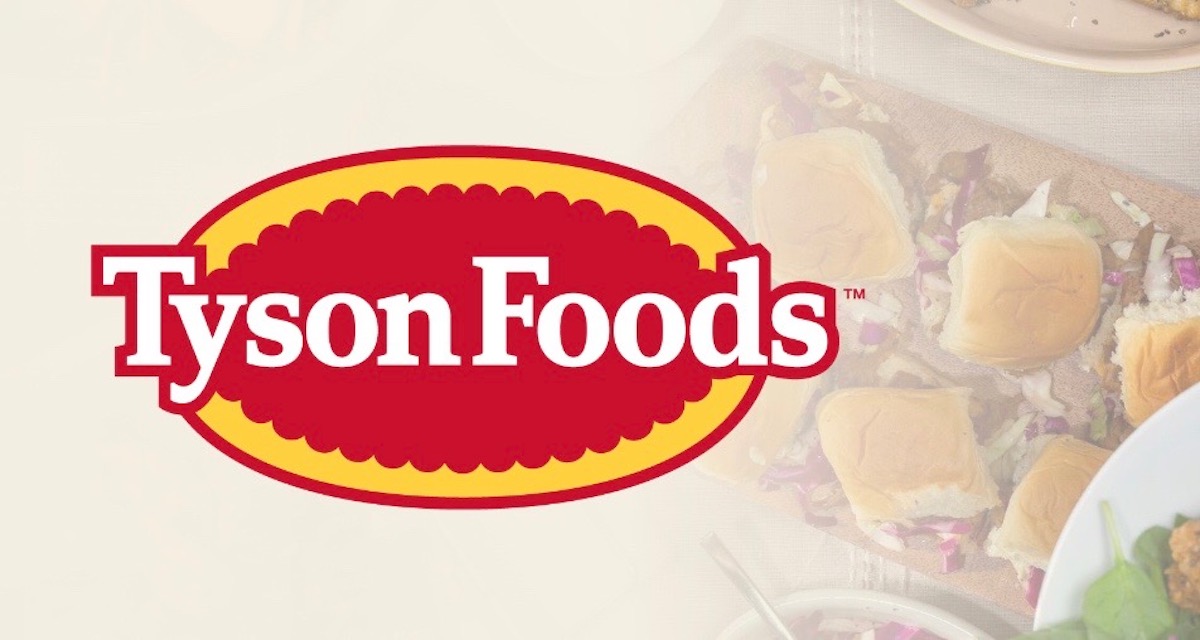Bussiness
Tyson execs bullish on better results in 2024 – Talk Business & Politics

Tyson Foods’ stock price edged up Wednesday (May 15) following comments made by CEO Donnie King and Chief Financial Officer John R. Tyson at the BMO Global Farm to Market Conference.
While Tyson execs could not say for certain when the U.S. cattle herd would begin rebuilding, there are bright spots in the chicken and pork markets and each exec said continued gains are likely in Tyson’s core businesses.
“We are seeing the benefit of our diverse portfolio across proteins, channels, categories and eating occasions. We are seeing tailwinds in chicken, helping to offset headwinds in the beef business,” King said at the conference.
He said all of Tyson’s businesses have better top-line revenue compared to a year ago. King said in the chicken segment, grain costs have moderated while they are still higher than the pre-pandemic levels. He said demand for chicken is solid, which supported the quarterly $325 million improvement the segment reported a year ago. King said less production resulted in lower supply, which increased prices and reduced inventories. He said Tyson continues to improve production metrics with better hatching numbers and healthier chickens.
He said the prepared foods segment was negatively impacted by lower-income consumers trading down to private labels.
He said cattle cycle challenges continue, driving up live-cattle costs and pressuring margins. King does not see any signs of heifer retention, which would be one of the first indications that the cattle herd is starting to rebuild. King said Tyson is focusing on higher-margin offerings, such as marinated meats, to improve processing profits.
Tyson’s beef business, its biggest segment, posted an adjusted operating loss of $151 million in the company’s first six months of the fiscal year, compared to $137 million in operating income a year earlier. Tyson’s smaller pork business is performing better than it has in a long time, King said.
“We have plenty of hogs, and demand for pork is very strong,” he added.
Muted revenue growth resulted in Tyson issuing flat guidance for fiscal 2024. This came on the heels of an 8% decline in chicken sales and a 1% decrease in prepared foods sales, which were somewhat offset by gains of 7% and 4% in beef and pork, respectively.
While Tyson burned through its cash flow in the second quarter, analysts expect the company will produce a free cash flow of about $300 million by the end of the year. King and CFO Tyson also reiterated at the conference the company would be cash flow positive in the back half of the year, and said the cash flow would be enough to cover the dividend.
Tyson pared down its capital expenditures for fiscal 2024 to about $1 billion in an effort to reduce debt. However, Tyson recently issued $1.5 billion in senior notes, with the goal of paying off short-term loans and retiring a $1.25 billion bond that matures in August.
“We have invested in areas of the business with the biggest growth potential from the value-added parts of the chicken business and in countries where we see the greatest growth potential outside the U.S.,” CFO Tyson said. “Those are really the priorities. We have built new plants in Asia. We built a new bacon facility in Kentucky and a new value-added chicken facility in Danville, Virginia. So, I think we feel good about the investments that we have made and I say recent history is probably predictive of where we will continue to invest.”
Shares of Tyson Foods (NYSE: TSN) closed Wednesday at $60.71, up 44 cents. For the past 52 weeks, the shares have traded between $44.94 and $62.04. Tyson’s stock price is up 10.38% year to date.










